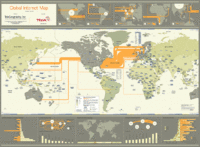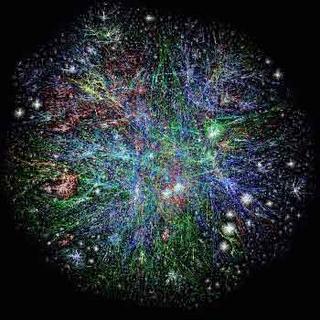Paul Swaim
God and geek.
Wednesday, October 26, 2005
Saturday, October 22, 2005
 I have been working with a class at church trying to impart a personal ownership of one's involvement in the congregation. I know that people are often afraid of discussing the topic for one reason or another, yet I didn't realize how many people it seemed to put off. We're not talking about "get involved because the church needs people to do stuff", and we're not talking about "feel guilty so you will participate in more stuff". What we are talking about is being personally excited about worship, study, and service to the Lord. In having a personal ownership of these things, we will be the infectious Christians God desires us to be. We will be like the apostles who said "we cannot help speaking about what we have seen and heard". We will be like those who studied the Scriptures daily to find Truth. We will be like those who went from house to house, encouraging others. Those who have been coming have offered great discussion, and have been open-minded to the challenge to perform a self-inventory. We can always benefit from being honest with ourselves. If we think we have "arrived" at some spiritual cap, then we kid ourselves. I really think God looks at us, sees our child-like fumbling that we call "mature worship", applies His magnificent grace, then loves us perfectly despite our efforts. I love God.
I have been working with a class at church trying to impart a personal ownership of one's involvement in the congregation. I know that people are often afraid of discussing the topic for one reason or another, yet I didn't realize how many people it seemed to put off. We're not talking about "get involved because the church needs people to do stuff", and we're not talking about "feel guilty so you will participate in more stuff". What we are talking about is being personally excited about worship, study, and service to the Lord. In having a personal ownership of these things, we will be the infectious Christians God desires us to be. We will be like the apostles who said "we cannot help speaking about what we have seen and heard". We will be like those who studied the Scriptures daily to find Truth. We will be like those who went from house to house, encouraging others. Those who have been coming have offered great discussion, and have been open-minded to the challenge to perform a self-inventory. We can always benefit from being honest with ourselves. If we think we have "arrived" at some spiritual cap, then we kid ourselves. I really think God looks at us, sees our child-like fumbling that we call "mature worship", applies His magnificent grace, then loves us perfectly despite our efforts. I love God.
Thursday, October 20, 2005
 Zen and the Art of Case Mods
Zen and the Art of Case Mods I tell you what: creativity knows no bounds! I appreciate what people do when they put their minds to it. I have no idea what the one to the left is supposed to be, but it is interesting anyhow! Here are some great case mods (computer cases that have been altered, or computers crammed into strange objects):
"Encyclomedia" - for those wives who don't like how the PC looks in the living room...
"Humidor CL" - for the aficionado
"NESPC" - from the "Got too much time on my hands" archive
"R2D2PC" - for the Star Wars nut
"TeddyBearPC" - for those who feel the need to hug their computer before bed
"LogCabinPC" - man I miss Lincoln Logs...
"Accordion" - for the music lover
"Battlefield2" - for the military; also 2nd version
"Surface-to-Surface" - this one is the bomb...literally
"Half-Life2" - Amazing mod. Be sure to scroll down to see the inside when lit!
Amazing stuff! Mine has a blue light in the front. (oooooh...ahhhhh!)
 Piracy v Integrity
Piracy v IntegrityI have spent days thinking about how to write about this topic. It is at the core of what I do. Licensing software and managing those licenses is a daily consideration for the computers I work with. For the average user, it is also at the crux of what they do. Consider where piracy exists: music files, DVDs, computer / console games. I have deleted several attempts to pine about this topic, and decided that I know what the problem is: no matter how I write about it, I will appear either a hypocrite or will alienate people.
The fact is, we don't like to think about piracy much. It slows us down in our entertainment. People just copy products without thinking seriously about what is at stake. Sure, there is a danger of getting caught, busted, fined, and/or jailed (see RIAA, too). The greatest loss, however, is not what the law of the land threatens. The biggest hit comes to one's integrity. The strange thing about integrity is that people don't often realize they have lost or damaged it. Perhaps this goes back to the God v Man post at it's lowest level.
The apostle Paul in the Bible once said "All things are possible, not all things are profitable". I am a computer guy by profession, and know where to get almost anything in digital entertainment that you could want. Just because I can does not mean that I should go get it. I attend parties where geeks gather and game together. We play tactical computer games against each other for hours, eat good food, and stay up all night. At these events, I see recorded CDs get passed around with varying content. If someone comes to the party without owning the games that we play, they can easily get a copy of the game from someone. Me? I just don't play the game. If I own it, I play it. If I don't own it, I don't play it. At this moment, my computer and everything on it is 100% legitimate. I own no pirated software, music, or video. I am in the process of learning more about the DMCA (Digital Millennium Copyright Act) so I can be in line with US law, but I find it difficult to understand entirely. The fact that the law has a hard time catching up with technology (it takes 2 years to get a big case to court, but computers double in speed in that time) makes it difficult to stay in line. Ignorance of the law is no excuse, but the complexity of tech law coupled with the bliss of that ignorance makes for a lot of sacrificed integrity.
Things to ask yourself when managing your media and copying practices:
+ Are you coming up with rationalizations why you can share software, video, or music?
+ Do rationalizations trump the law?
+ Do disagreements with the law allow a citizen freedom from the law?
+ Is it ok to duplicate software, music, or movies for others?
+ Does the cost of software, music, or movies change the right to make copies for others?
+ Is public uploading/downloading of software, music, or movies is ok?
+ Do I have the right to decide how the property of others is handled?
If you answer "yes" to ANY of the above questions, then you are a pirate! For some it is obvious, for some it is not. Some choose to operate against the law, and others just don't realize what piracy means. Either way, the law is broken. I have a softer spot for those who don't know, and get angered now by those who do. I have helped many people out at their homes with their computers, only to find that one of their teenagers has installed a pirated copy of Windows on their PC. Rarely is there a sense of urgency to remedy the problem.
I am not perfect in this gambit; I get tempted by it all the time. I am choosing to make a concerted effort to learn what the law means, and how it is changing. I already have my Christian values which show me in the Bible the obvious nature of the heart and how others should be treated. I know my personal responsibility there, which stems from an absolute truth of how the property of others should be regarded. I challenge anyone to look at their collections and move to a better way. If not for the law, for your own enjoyment of knowing that your integrity is worth more than a $50 game, a $15 DVD, or a $1 mp3.
I hope that you care.
Tuesday, October 11, 2005
 "I don't want the world. I just want your half."
"I don't want the world. I just want your half."I tend to be successful in my predictions of technology trends and futures, yet have been floored by the publicity of a recent feud that has the precursors to make one of my wildest predictions come true.
I said that the next major worldwide war would involve the internet, and that the casualties would not be people, but rather information and access to that information. A sample of what I am thinking of is found in an article showcasing the BBC's rough take on the state of internet management. http://news.bbc.co.uk/1/hi/technology/4327928.stm (read before continuing)
Much of the world believes that the internet naming system should be managed by the United Nations. The United States manages all but two or three of the root domain naming servers, and much (all?) of the ARIN servers which are a critical component of how you get to read wonderful sites like www.ilovebees.com. I have several opinions on the subject, as well as some thoughts to reflect on:
The U.N. would have to get its own ducks in a row before trying to add ducks to the line. (see: Oil for Food, also see: Iraq)
The United States began the internet. I'm sorry you became dependent on it. The world depends on oil, so let the UN wrest control of oil from the few controlling nations before asking the US for control of the internet.
Right now, the Europeon Union says that they are considering their own internet, segmenting off from the rest of the world and threatening to splinter the information superhighway.
I, for one, can see both sides of the story. The businessman in me says "Let's make money off a hot commodity", the humanitarian in me says "Let's make information free". I have another part of me that says "Be nice to us, because we don't HAVE to make information free". I would sooner hand over the control of the internet to the IEEE or IETF than the UN. The UN is a peacekeeping organization (isn't it?). Technical standards groups already exist. If I want to move troops into a rebellious nation, the UN can help. If I want to quell riots and send relief aid, the UN can probably help. If I want to make technological standards and manage a multinational system of complex computer hardware and proprietary software that governs the world's flow of information? NOT the UN. Politics can flow across the internet, but let's not make the internet political.

